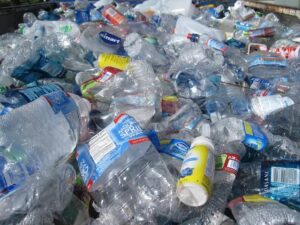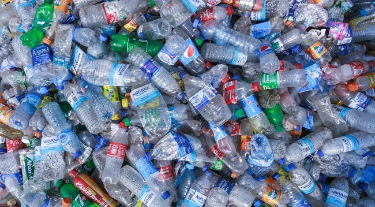In a decisive move towards environmental sustainability, the Federal Government of Nigeria announced a ban on single-use plastics within all ministries, departments, and agencies. This announcement was made on Tuesday by the Minister of State for Environment, Iziaq Salako, during a press briefing at the Presidential Villa in Abuja, following the Federal Executive Council (FEC) meeting chaired by President Bola Tinubu.
Salako highlighted that this ban is a proactive step in line with the National Policy on Plastic Waste Management, which was adopted in 2020. The policy envisages the prohibition of specific categories of plastics by January 2025. These include single-use items such as plastic spoons, straws, PET bottles, and water sachets. “What the Federal Government is doing is preparing the minds of Nigerians and leading by example,” Salako explained.
This policy shift underscores the government’s commitment to addressing critical environmental issues such as climate change, biodiversity loss, and plastic pollution, which pose significant challenges to the nation. Salako emphasized that plastic waste is a major environmental hazard, clogging drains and contributing to severe flooding, particularly in urban areas. Moreover, plastic pollution has detrimental effects on marine life, human health, and the overall ecosystem.
The minister’s announcement follows a similar directive by the Lagos State Government, which banned single-use plastics and Styrofoam in January. This alignment between federal and state policies reflects a growing consensus on the urgent need to tackle plastic pollution through legislative and regulatory measures.
Plastic waste management has become a pressing issue in Nigeria, where inadequate waste disposal systems exacerbate the problem. Single-use plastics, in particular, are notorious for their contribution to environmental degradation. They are not only difficult to recycle but also tend to accumulate in landfills and natural habitats, causing long-term harm to wildlife and human populations.
Salako’s briefing included details on how the federal ban will be implemented across government institutions. Ministries, departments, and agencies are expected to transition away from single-use plastics, adopting more sustainable alternatives. This move is part of a broader strategy to set a precedent for the private sector and the general public, encouraging widespread adoption of environmentally friendly practices.
The minister also noted that this ban is part of a comprehensive approach to environmental conservation, which includes public education campaigns, incentives for recycling, and the development of infrastructure to support waste management. By taking these steps, the government aims to mitigate the environmental impact of plastic waste and foster a culture of sustainability.
Environmental activists and organizations have welcomed the ban, viewing it as a crucial step towards mitigating the pervasive issue of plastic pollution. They argue that effective implementation and public compliance will be key to the policy’s success. Additionally, they call for the expansion of such measures to include broader waste management practices and stricter enforcement mechanisms.
 As Nigeria moves towards the 2025 deadline for the ban on certain plastics, the government’s current efforts are seen as laying the groundwork for more comprehensive environmental reforms. The federal ban on single-use plastics is expected to serve as a catalyst for further policy initiatives aimed at promoting environmental sustainability and reducing the country’s carbon footprint.
As Nigeria moves towards the 2025 deadline for the ban on certain plastics, the government’s current efforts are seen as laying the groundwork for more comprehensive environmental reforms. The federal ban on single-use plastics is expected to serve as a catalyst for further policy initiatives aimed at promoting environmental sustainability and reducing the country’s carbon footprint.
The commitment to reducing plastic waste is also in line with global environmental goals, including the United Nations Sustainable Development Goals (SDGs), which call for urgent action to combat climate change and its impacts. By aligning national policies with these international standards, Nigeria is positioning itself as a leader in environmental stewardship within the African continent.
In conclusion, the Federal Government’s ban on single-use plastics represents a significant step towards environmental sustainability. It not only addresses immediate issues of plastic pollution but also sets the stage for a broader cultural shift towards more sustainable practices. As the policy takes effect, its success will depend on effective implementation, public cooperation, and ongoing efforts to enhance waste management infrastructure across the country.




